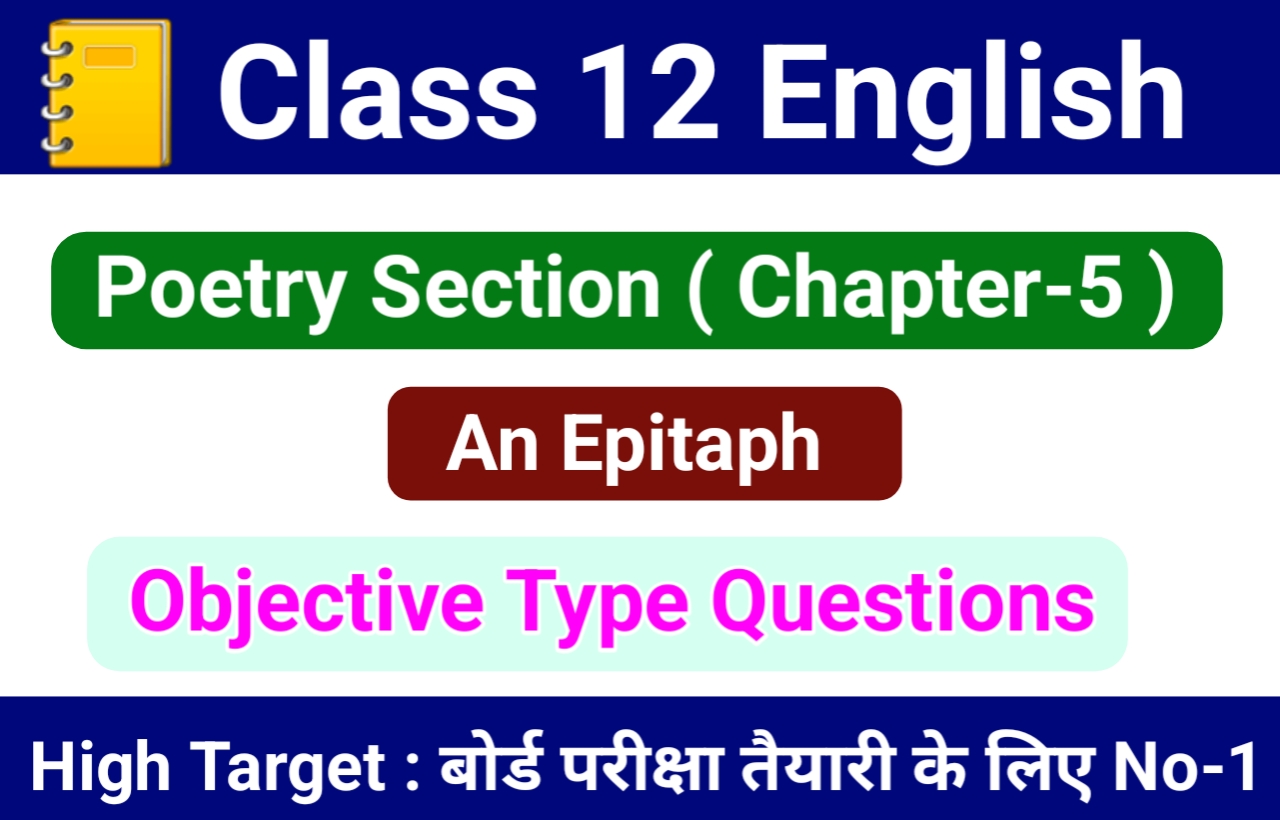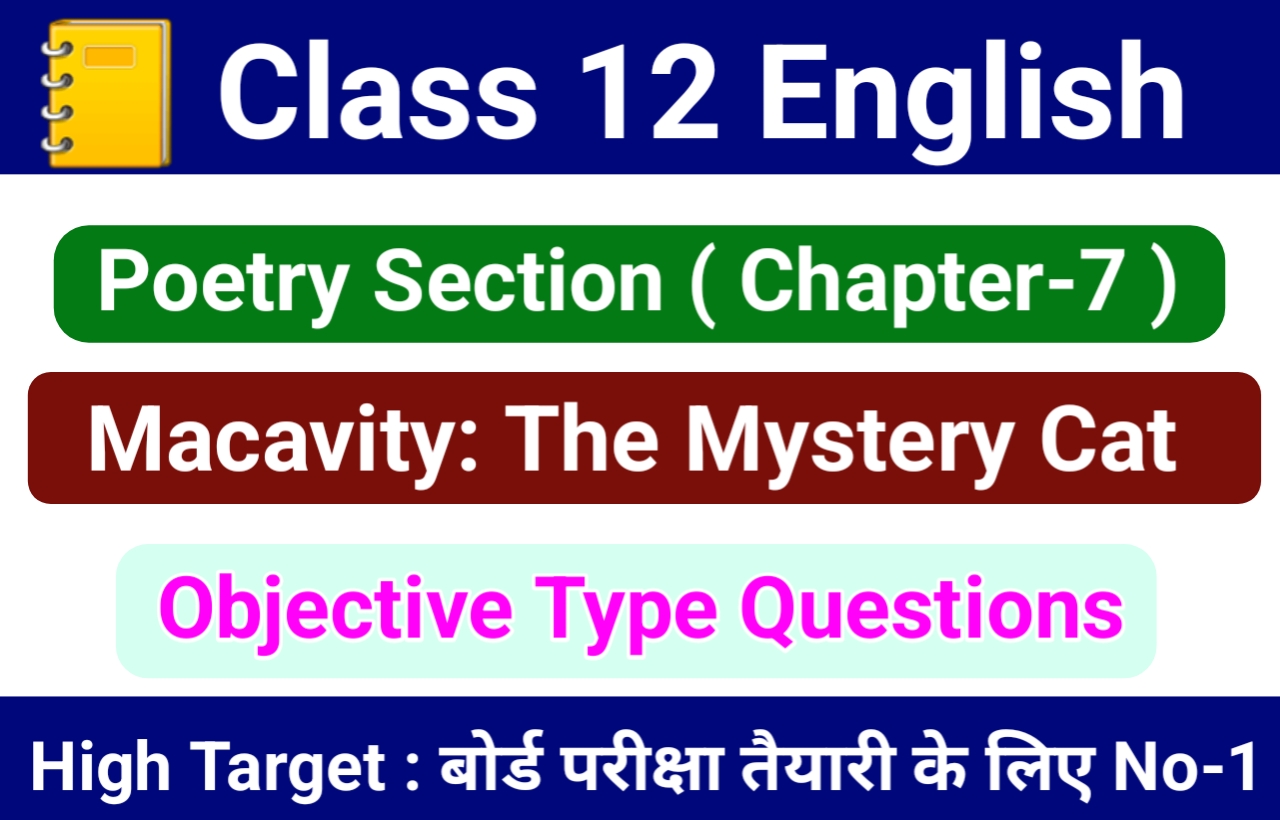
6. THE SOLDIER
1. ‘The Soldier’ is –
(A) an ode
(B) a sonnet
(C) an epic
(D) None of these
2. The Soldier’ is ………… poem.
(A) a symbolic
(B) a lyrical
(C) a patriotic
(D) None of these
3. The Soldier’ deals with –
(A) France
(B) Russia
(C) Scotland
(D) England
4. The term ‘concealed stands for………..in The Soldier.
(A) hidden
(B) disappeared
(C) absent
(D) None of these
5. According to ‘The Soldier’ England has given her natives her flowers –
(A) to worship
(B) to love
(C) to offer
(D) None of these
6. Who has composed the poem, The Soldier ?
(A) Rupert Brooke
(B) T.S. Eliot
(C) D.H. Lawrence
(D) WH Auden
7. Rupert Brooke was born in—
(A) 1886
(B) 1887
(C) 1888
(D) 1889
8. Rupert Brooke was died in –
(A) 1913
(B) 1914
(C) 1915
(D) 1916
9. Rupert Brooke is remembered as a –
(A) Trench poet
(B) Georgian poet
(C) Realistic poet
(D) War poet
10. Brooke inspired patriotism in the …….. phase of the First World War.
(A) early
(B) middle
(C) late
(D) None of these
11. Rupert Brooke has written the poem-
(A) Snake
(B) An Epitaph
(C) The Soldier
(D) Song of Myself
12. The Soldier is a …….. poem.
(A) muture
(B) war
(C) love
(D) happy
13. The images and praises of ……….. run through both the stanzas.
(A) England
(B) America
(C) France
(D) India
14. The place where the soldier would be buried should be treated as the part of ….. after his death.
(A) Germany
(B) France
(C) Italy
(D) England
15. T’he speaker of the poem ‘The soldier’ is a-
(A) doctor
(B) soldier
(C) teacher
(D) trader
16. The poem .. is a patriotic poem.
(A) Song of Myself
(B) Fire-Hymn
(C) The Soldier
(D) An Epitaph
17. Rupert Brooke speaks in the guise of an………. Soldier.
(A) English
(B) American
(C) French
(D) European
18. The poem ………… is a sonnet.
(A) Fire-Hymn
(B) The Soldier
(C) Song of Myself
(D) Snake
19. The speaker is not afraid of –
(A) death
(B) life
(C) lion
(D) None of these
20. The dust stands for the……………………..
(A) leader
(B) teacher
(C) farmer
(D) soldier
21. The poet in ‘Ther Soldier’ is depicting the miseries of-
(A) war
(B) nature
(C) relation
(D) love
22. À sonnet is a poem of ………. lines.
(A)16
(B) 14
(C) 18
(D) 20
23. ‘It I should die, think only, this my me’ is taken from-
(A) An Epitaph
(B) Fire-Hymn
(C) The Soldier
(D) Snake
24. ‘A pulse in the eternal mind, no less’ is written by-
(A) John Keats
(B) Walter de la Mare
(C) Walt Whitman
(D) Rupert Brooke
| S.N | OBJECTIVE QUESTION ( PROSE SECTION ) |
| 1 | INDIAN CIVILIZATION AND CULTURE |
| 2 | BHARAT IS MY HOME |
| 3 | A PINCH OF SNUFF |
| 4 | I HAVE A DREAM |
| 5 | IDEAS THAT HAVE HELPED MANKIND |
| 6 | THE ARTIST |
| 7 | A CHILD IS BORN |
| 8 | HOW FREE IS THE PRESS |
| 9 | THE EARTH |
| 10 | INDIA TROUGH A TRAVELLERS EYES |
| 11 | A MARRIAGE PROPOSAL |
| S.N | OBJECTIVE QUESTION ( POETRY SECTION ) |
| 1 | SWEETEST LOVE, I DO NOT GOE |
| 2 | SONG OF MYSELF |
| 3 | NOW THE LEAVES ARE FALLING FAST |
| 4 | ODE TO AUTUMN |
| 5 | AN EPITAPH |
| 6 | THE SOLDIER |
| 7 | MACAVITY : THE MYSTERY CAT |
| 8 | FIRE- HYMN |
| 9 | SNAKE |
| 10 | MY GRAND MOTHER’S HOUSE |
| Story of english |




